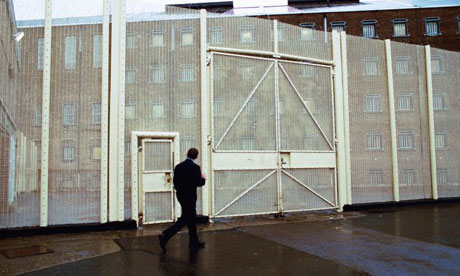
On Sunday night, shortly after I finished reading This Is How, MJ Hyland's story of crime and punishment, my girlfriend switched on Miss Marple – and my brain, already drifting on currents of flu and baby-induced sleep deprivation, happily sailed off on holiday. I enjoyed it, even half watching, though I couldn't tell you that much about the programme other than that it had something to do with an election campaign, that someone was found dead in a bath and that everything – typically to all such costume dramas – was far too clean to be believable.
But my time snoozing in front of the box wasn't wasted. Miss Marple also provided an interesting contrast to This Is How. The other thing I gleaned from the programme was how crucial motive was to the whole thing. Characters spent a deal of screen time revealing dark secrets about their past, hidden lusts, ambitions and veins of madness – which all led nice old Jane Marple to the malefactors and also made the killings explicable. The idea floated into my mind that this insistence on cause is one of the things that makes sense of the paradoxical comfort so many of us seem to get from watching programmes about murder. Because there is always an elaborate explanation behind the crimes, it makes them feel distant. We can take reassurance from the fact that there's no one we know whom we wronged 10 years ago, who is eager for our money as well as revenge and who also happens to be a psycho. Better still, it separates us from the killers. We don't have a motive, so we can't be like them.
This Is How, in turn, is made all the more claustrophobic and unsettling because it places us inside the head of man who kills for no reason. (Read an extract.) Patrick Oxtoby stoves in the head of Ian Welkin (a fellow lodger in his seaside boarding house) with an adjustable wrench in a moment of – not exactly madness, but unusual behaviour – that changes the course of his life and ends another. Patrick is unable to explain why he did it. He even claims that he would have liked to have become friends with his victim. In his mind, he didn't want to hurt anyone: "But my body acted and as far as the law's concerned my body might as well be all I am." So, he's doomed. Because of five strange minutes. It's a long way from the cosy Sunday killings of Miss Marple.
Patrick is so unable to understand why he acted that he continues to maintain his innocence to the reader and to himself (as well as in a tense and expertly dramatised court case) until deep into the book. His voice is almost as cold and flat as his Arab-killing predecessor, Camus' Meursault – only with an added layer of whiny discomfort as he repeatedly pleas for sympathy and understanding for his senseless crime. There are a few hints that he isn't quite right: a few moments of disproportionate anger; an inability to communicate without a few pints inside him; a confession that he couldn't express emotion to an ex because "I didn't have that many." But really it's Patrick's cold sanity that makes him so hard to bear. The feeling is that he isn't too far from you, me or anyone we might know, and is certainly capable of winning our sympathy alongside revulsion.
As well as being so well-pitched emotionally, Patrick's voice is also a considerable technical achievement. It's conveyed in short simple sentences written in an uncomfortably intimate present tense that becomes especially vivid in the latter half of the book, which deals with his confinement. There are skilful evocations of the fear of getting "jumped" in prison, the routines of locked doors, open and shutting latches, the lack of natural light, the disturbed sleep, the smell of sweat, shit and masturbation. There are small telling details full of horror (dark marks from cigarettes around the edge of the plastic bowl from which Patrick must eat) and wider, chilling, investigations of hierarchies and violence.
Impressive as all that is, there are also considerable problems here. Like many books that insist on realism, the false notes ring louder. The dialogue between Patrick and Welkin is frequently off-key (and often set in unlikely situations such as a house-meeting Welkin calls just to apologise for a petty indiscretion). It seems unlikely that a waitress with whom Patrick goes on one date would form an attachment with him that lasts past his imprisonment – and even write to him to express her continuing affection. Worst of all, it's painfully cliched and unlikely when almost everyone Patrick meets in prison turns out to be gay and/or a sexual deviant. By the latter stages, he can't have a conversation without you wondering if his interlocutor – guard or prisoner alike – is going to demand sexual favours. And inevitably they do. It's overdone and seriously detracts from what could have been touching central theme about Patrick's need for intimacy, male or female.
And so, an otherwise excellent novel started to feel tiresome and prurient. It's a good book, but I was relieved to drift off to Miss Marple …

